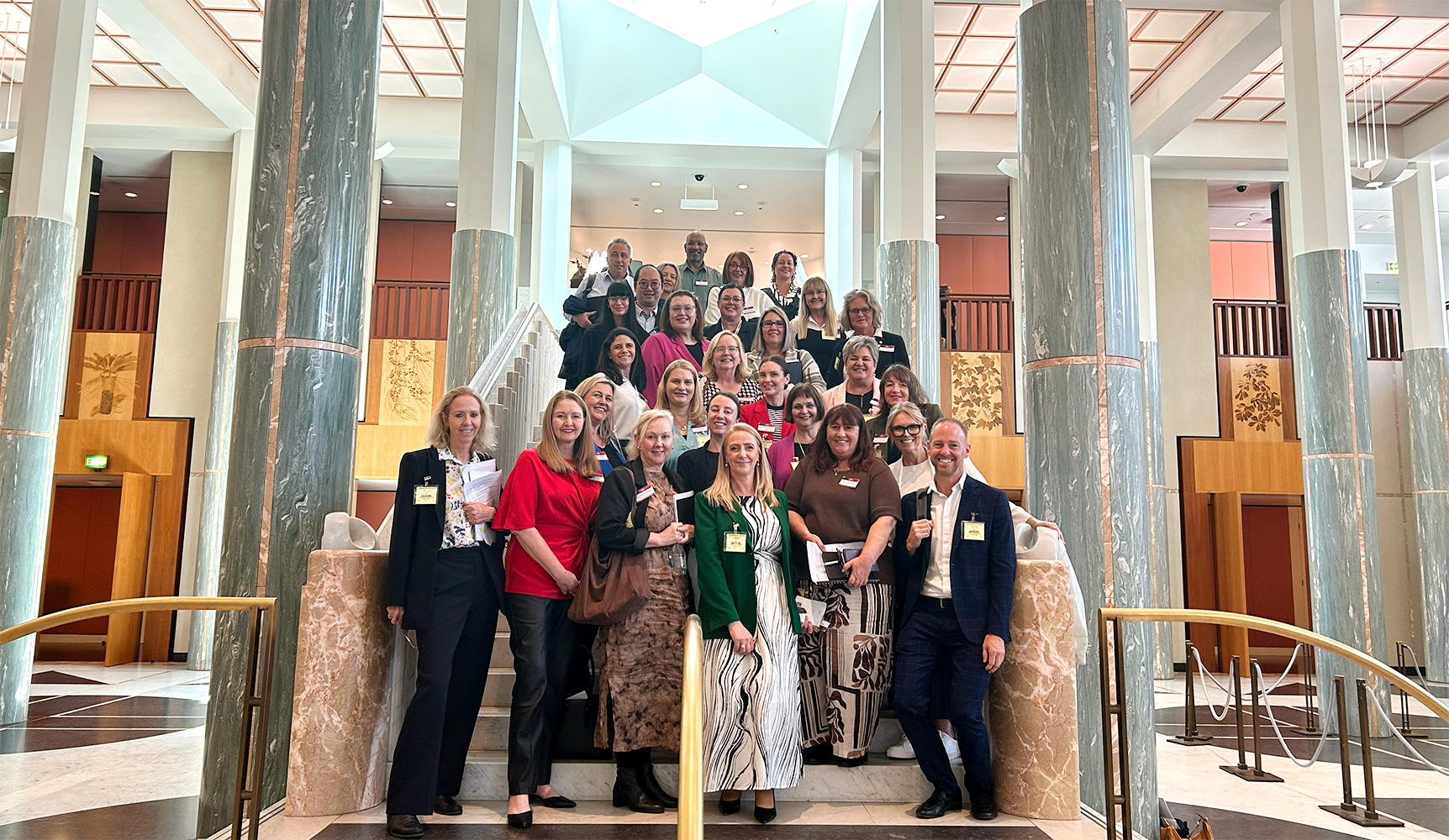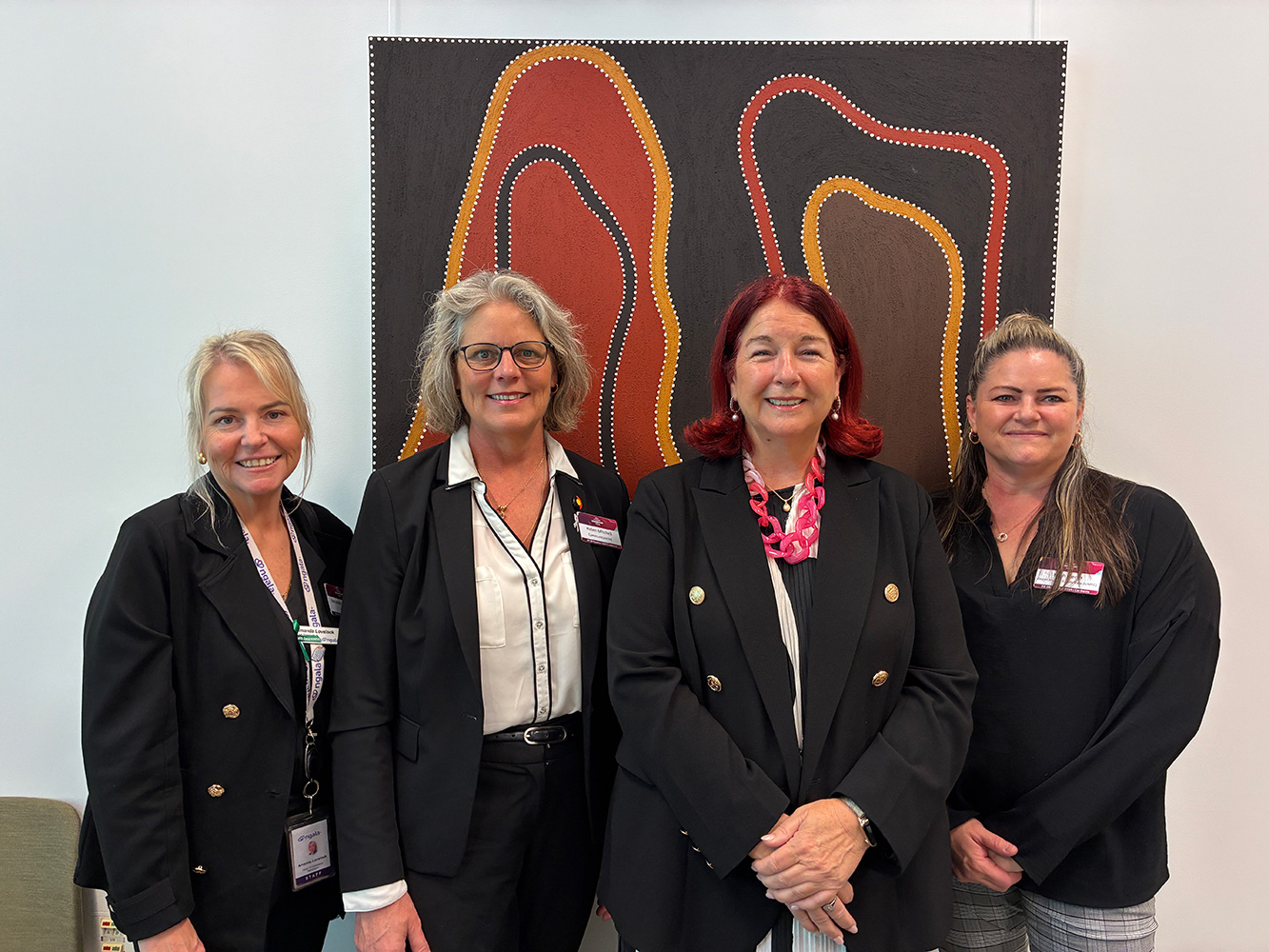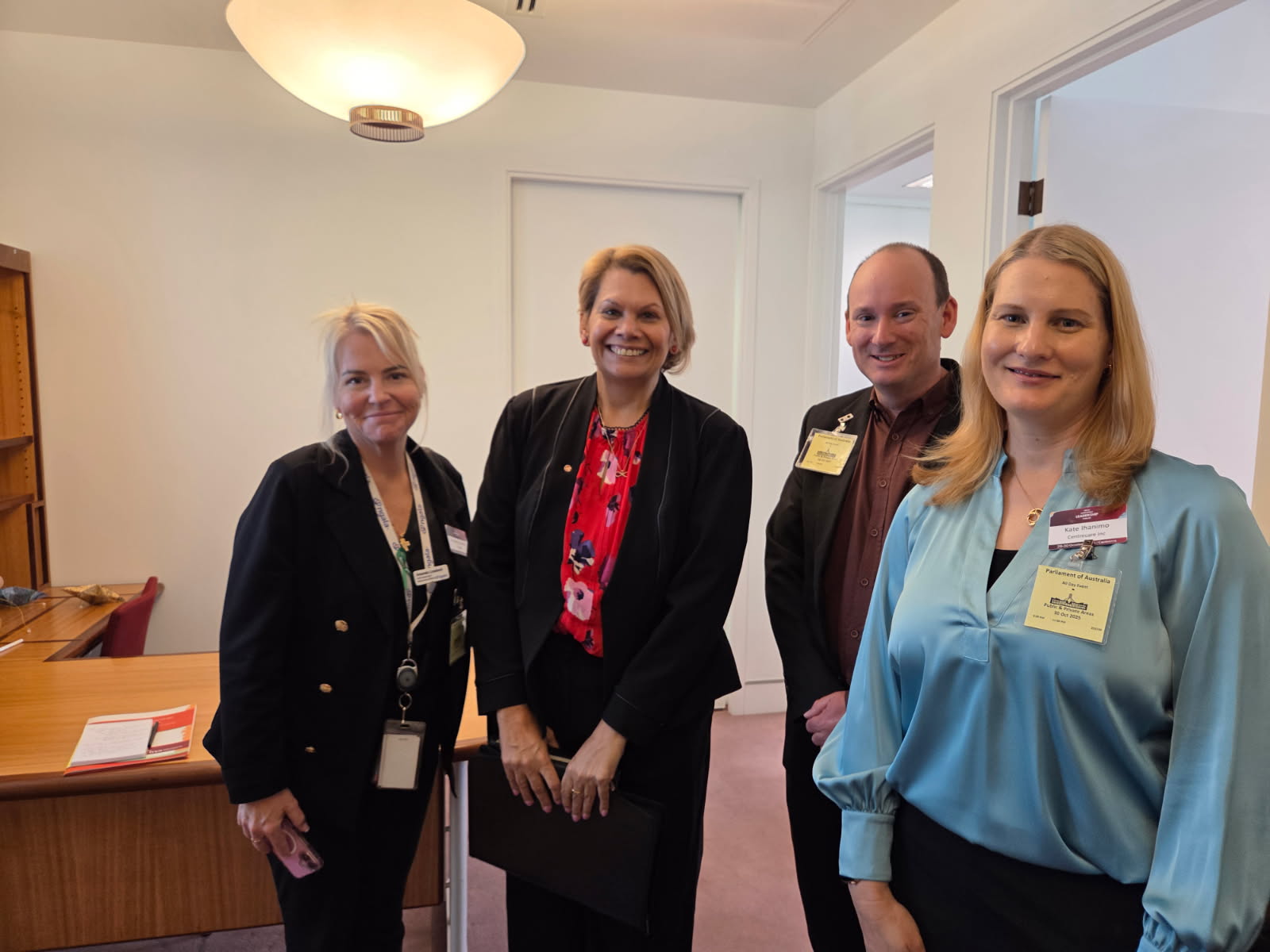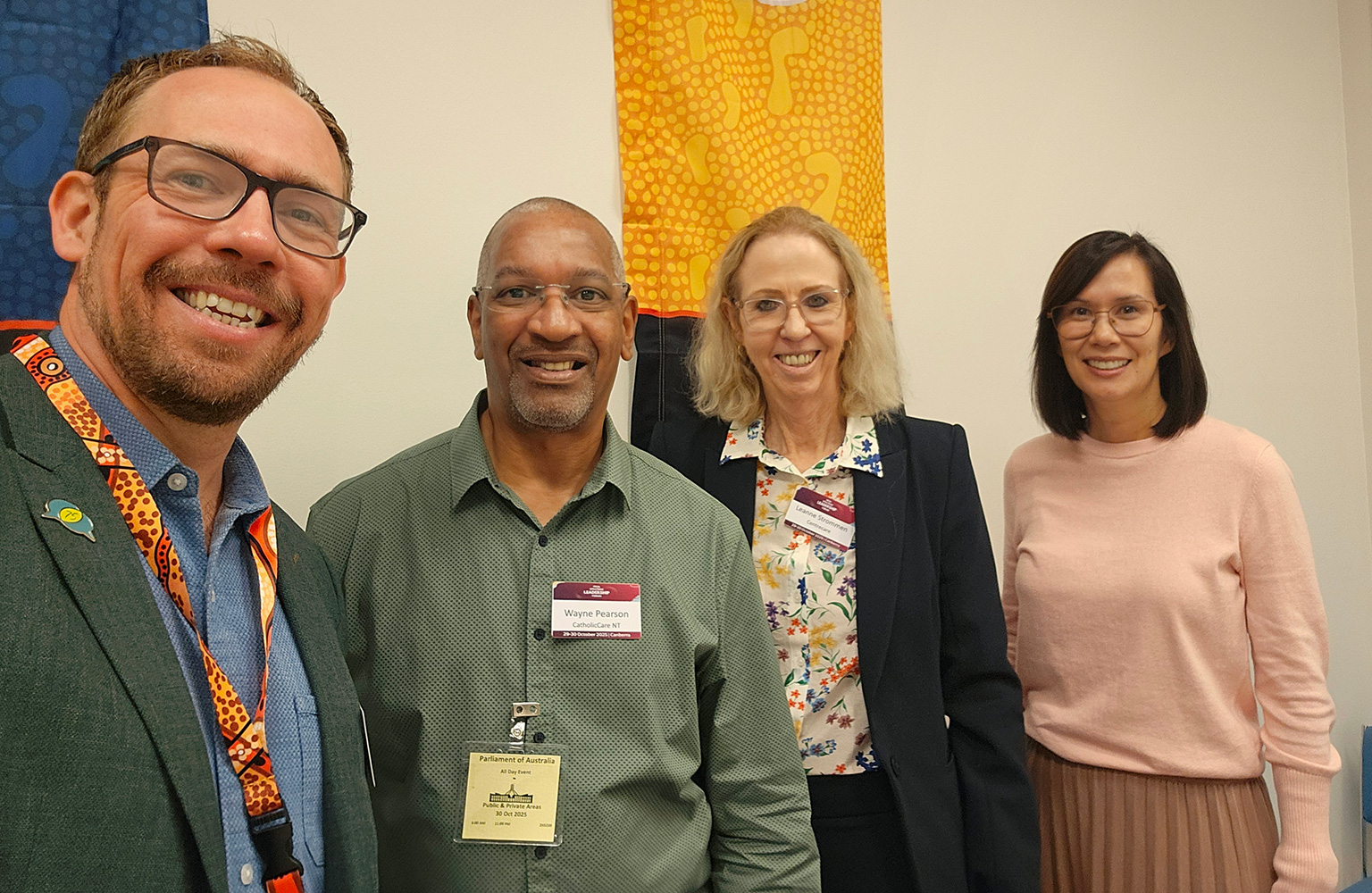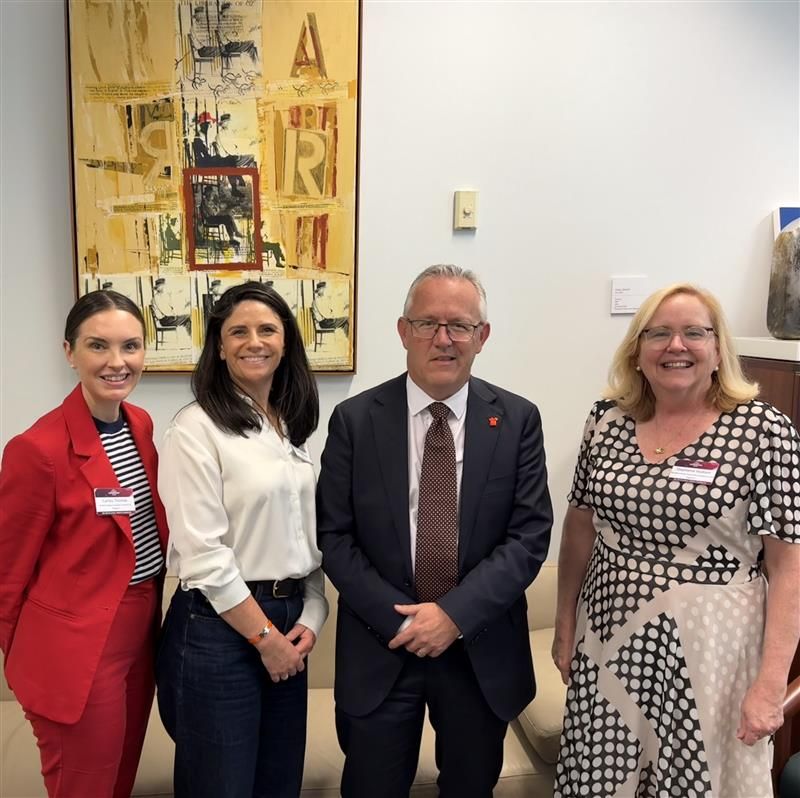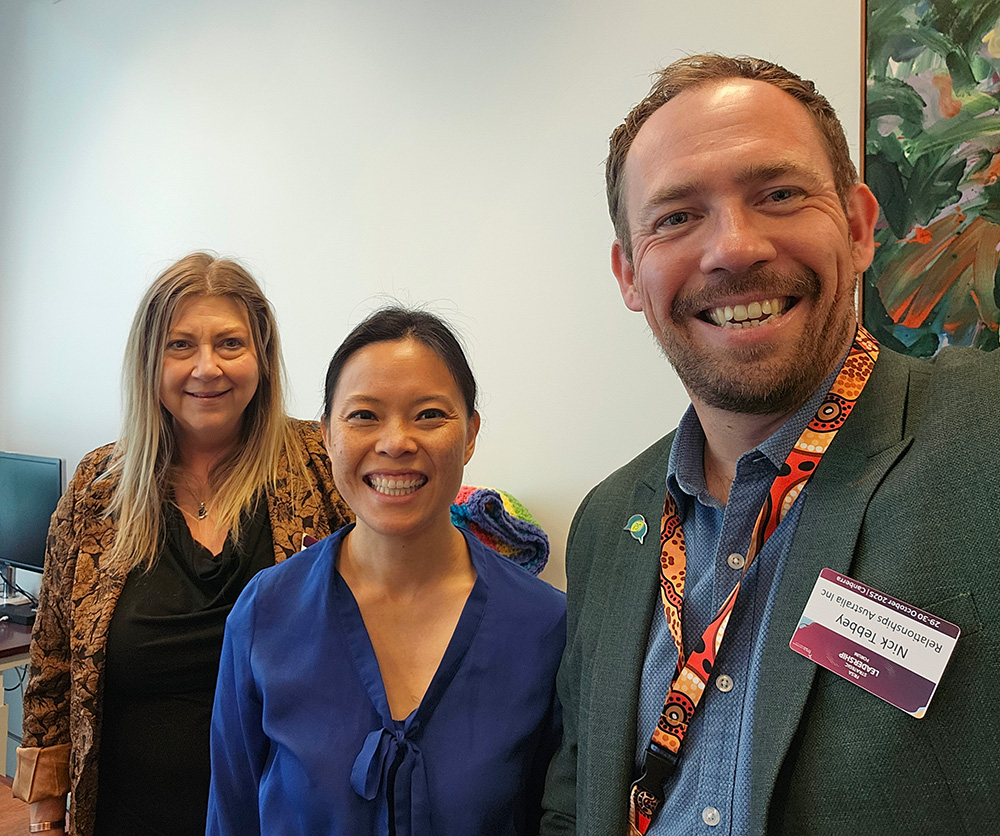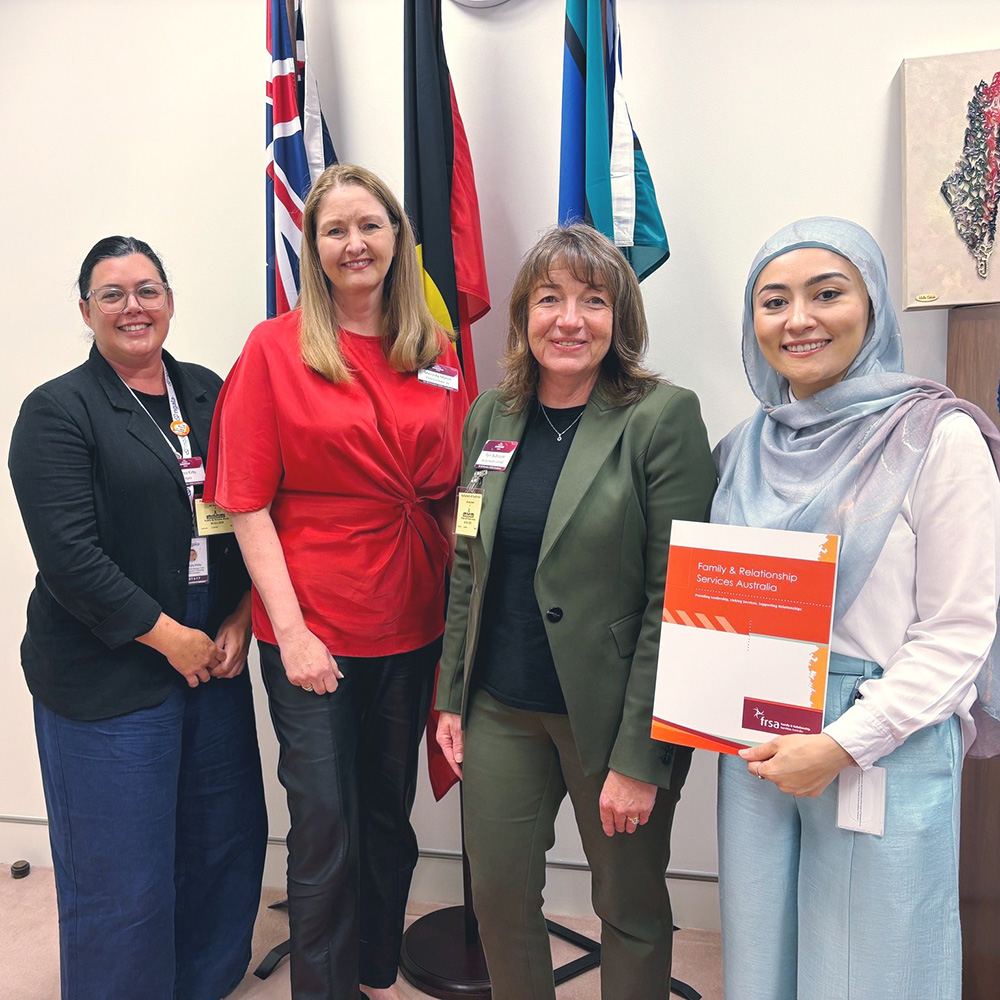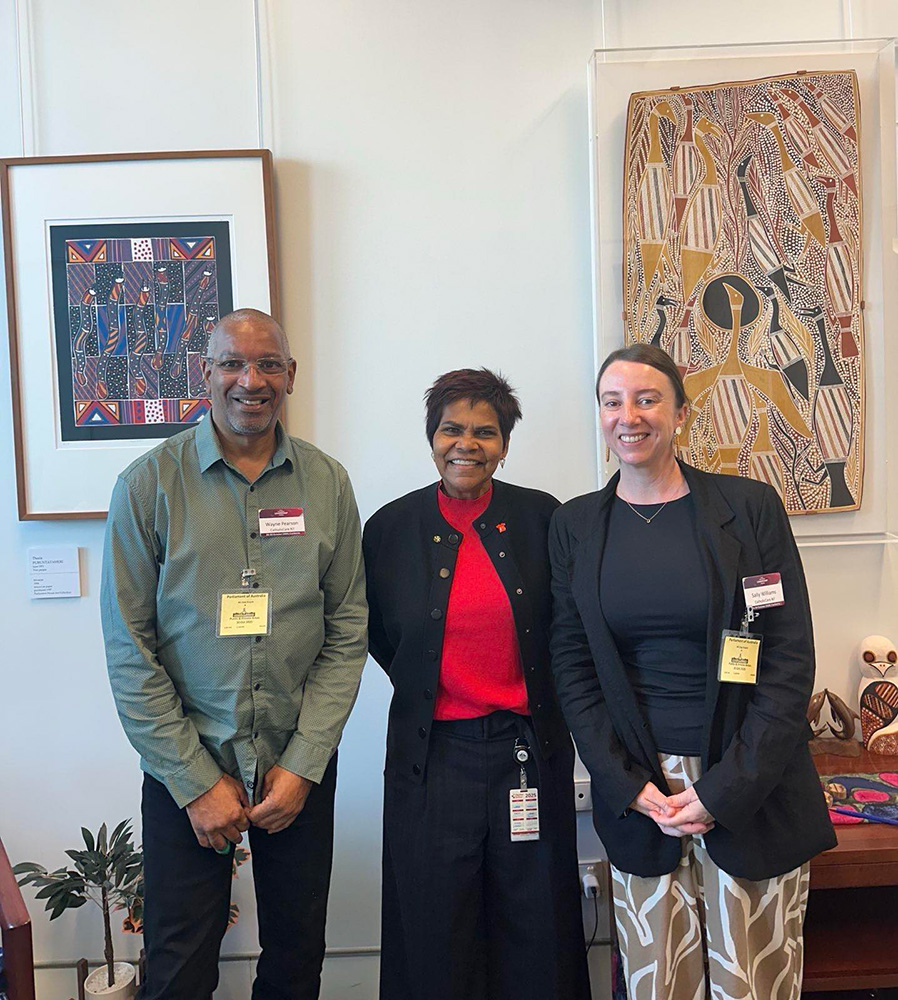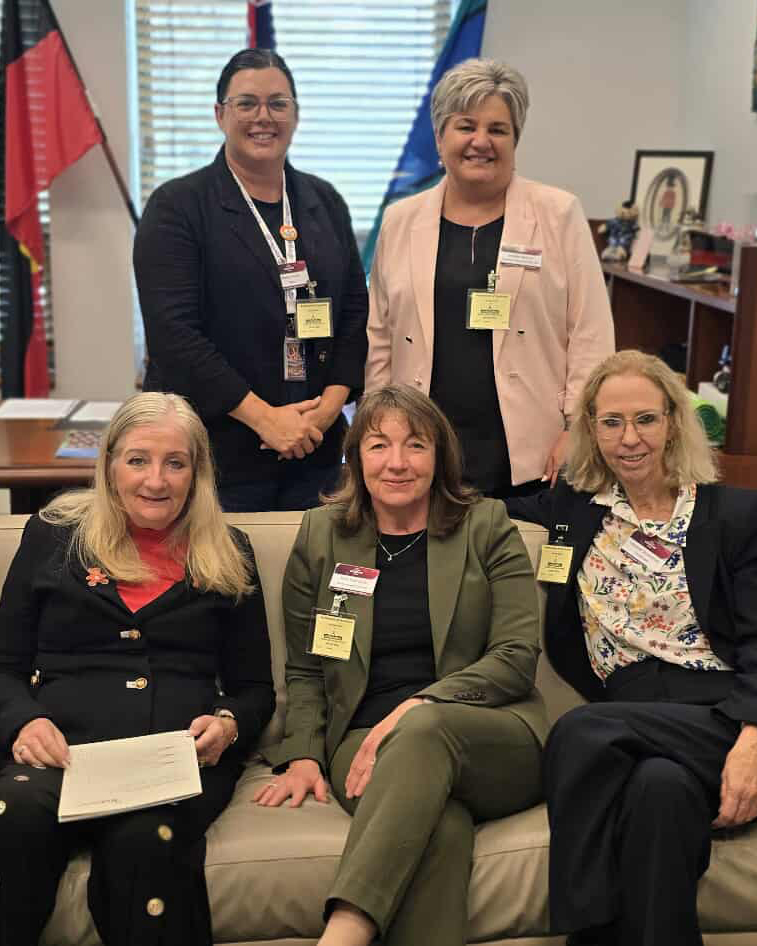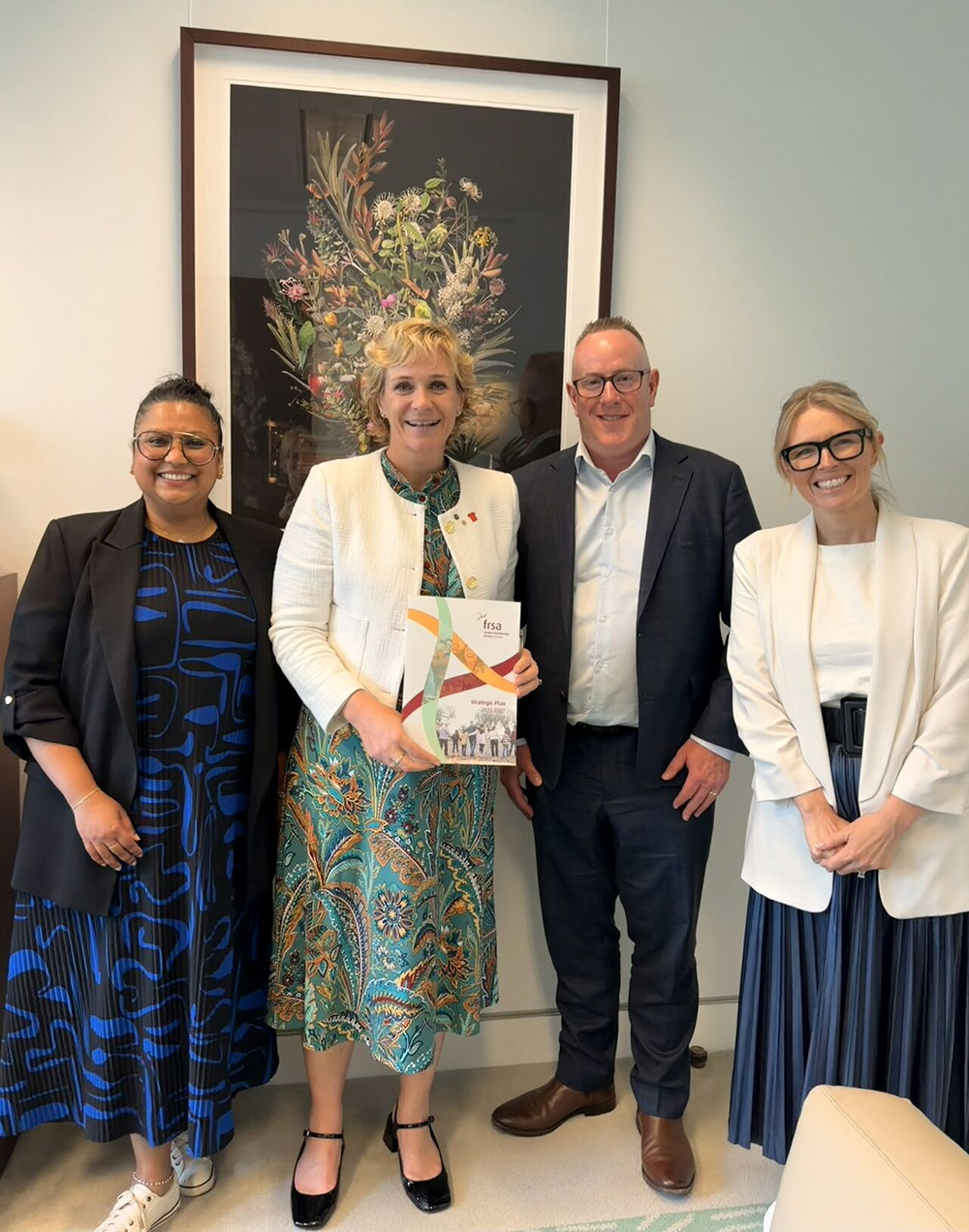
No. 17, 2025 | 7 November 2025
Go to:
From FRSA's Executive Director
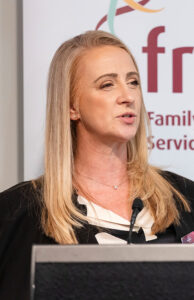
 I write to you today from Melbourne where our Events Officer, Narelle Kay, and I had the pleasure and privilege of attending the Association AwardsTM 2025 Dinner last night. FRSA was nominated in the Association Event of the YearTM category for the FRSA National Conference 2025. While we didn’t win the award, we were shortlisted and are proud of our achievement. The FRSA team love bringing this event to the sector each year and we appreciated the opportunity to celebrate along with a range of other associations bringing exciting events to their members and stakeholders. We were in a strongly contested competition and congratulate the Institute of Health and Safety on their win.
I write to you today from Melbourne where our Events Officer, Narelle Kay, and I had the pleasure and privilege of attending the Association AwardsTM 2025 Dinner last night. FRSA was nominated in the Association Event of the YearTM category for the FRSA National Conference 2025. While we didn’t win the award, we were shortlisted and are proud of our achievement. The FRSA team love bringing this event to the sector each year and we appreciated the opportunity to celebrate along with a range of other associations bringing exciting events to their members and stakeholders. We were in a strongly contested competition and congratulate the Institute of Health and Safety on their win.
Last week, FRSA delivered another of our highlight events – the Strategic Leadership Forum. This member-only event brings together senior leaders in Canberra to discuss emerging issues and key sector priorities. It will likely come as no surprise that AI was top on the agenda. We also spent a day at Parliament House where members met with around 60 politicians from across the divide to share the important work of the sector in meeting the needs of children, families and communities across Australia. The team and I greatly enjoyed the opportunity to connect with members, and we appreciated the energy, enthusiasm and insights that our colleagues brought to discussions. You can read more about the Forum below.
Earlier this week, the Department of Social Services released its discussion paper on A new approach to programs for families and children. This follows Minister Plibersek’s announcement on 23 October that 5 programs under the Families and Children Activity would cease in January 2027 with a new single national program established in its place. The consultation focuses on that new national program. The timeline is tight with submissions due on 5 December. FRSA is developing a submission, and we’ll be consulting with members over the next 2 weeks (Members can find out more and register below).
It was recently National Children’s Week (18-26 October), and we share some of the ways FRSA Members celebrated below.
Kind regards,
Jackie Brady
FRSA Executive Director

A new approach to programs for families and children – FRSA Member forums
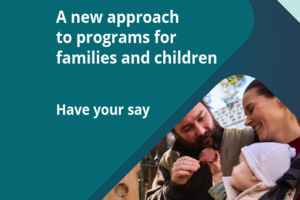 Background
Background
On 23 October 2025, the Minister for Social Services, the Hon Tanya Plibersek MP, announced proposed reforms to supports and services for families, children, and young people. Five programs under the Families and Children (FaC) Activity will cease at end January 2027 and be replaced by a single national program. The five programs are: Child and Parenting Support (CaPS), Communities for Children Facilitating Partners (CfC FP), Family Mental Health Support Services (FMHSS), Family and Relationship Services (FaRS) and Specialised Family Violence Services (SFVS).
Following the Minister’s announcement, on 3 November the Department of Social Services opened a consultation on the proposed reforms – a new approach to programs for families and children. Submission close 5 December 2025.
Member Forums (note: you must be an FRSA Member to attend)
Over the next 2 weeks, FRSA will hold the following member forums online:
- Reform announcement: general Member discussion – Thursday 13 November, 3.00pm-4.00pm (AEDT). For more information and click here to register.
- A new approach to programs for families and children: Member consultation:
- Tuesday 18 November, 2.00pm-3.30pm (AEDT) – Register here
- Thursday 20 November, 1.30pm-3.00pm (AEDT) – Register here
For more information and to register for one of the consultation discussions click the link above.
If you have any questions, please contact Robyn Clough, Manager Policy & Research – policy@frsa.org.au

FRSA National Conference 2026 - Call for Abstracts DEADLINE EXTENDED!
FRSA has extended the Call for Abstracts deadline for the FRSA National Conference 2025 to 12 November 2025!
Don’t miss the opportunity to showcase your work at one of the largest gatherings of practitioners, academics and policy makers working to support children, families and communities. We welcome abstracts that speak to the conference theme – Showcasing: Practice, Evidence, Impact.
All abstracts must be submitted online by 11:59pm AEDT Wednesday 12 November 2025. For more information, or to submit your Abstract, please visit the Conference website here.
Register for the fourth FRSA First Nations webinar!
 Register for the final webinar in our First Nations focus on Family and Relationship services series, Growing Up Strong from early childhood: Stories and other findings from Footprints in Time: The Longitudinal Study of Indigenous Children presented byAssociate Professor Stuart Ekberg & Tirritpa Ritchie, Flinders University & Professor Kristin Laurens, Queensland University of Technology on Tuesday, 25 November 2025.
Register for the final webinar in our First Nations focus on Family and Relationship services series, Growing Up Strong from early childhood: Stories and other findings from Footprints in Time: The Longitudinal Study of Indigenous Children presented byAssociate Professor Stuart Ekberg & Tirritpa Ritchie, Flinders University & Professor Kristin Laurens, Queensland University of Technology on Tuesday, 25 November 2025.
Discover how the Longitudinal Study of Indigenous Children (LSIC) is being used to tell powerful stories—combining Indigenous knowledge, storying methods, and data—to understand what helps children thrive.In this webinar, researchers will share how they have adapted Indigenous storying methods to bring LSIC data to life, guided by a strengths-based approach and Indigenous conceptions of social and emotional wellbeing. Learn how culture, place, and strong families support wellbeing, and how these insights can shape better services and stronger communities.
Strategic Leadership Forum 2025
Last week, CEOs and Senior Leaders in the FRSA Network gathered in Canberra – Ngunnawal Country – for FRSA’s annual Strategic Leadership Forum (SLF).
Day 1 kicked off with a thought-provoking session on preparing for the future led by Michael McQueen, followed by David Spriggs CEO at Infoxchange who explored the transformative potential of AI.
We then moved into a member-led discussion featuring Relationships Australia Canberra & Regions CEO, Stephanie Hodson CSC PSM and Anglicare WA’s GM Digital Solutions, Dr Russell Thom who shared their experiences with AI in leadership. This was followed by updates from the Department of Service Social Services and the Attorney-General’s Department and a presentation from the Department of Finance. The day wrapped up with a networking event providing members with the opportunity to connect and share ideas and priorities.
Day 2 started with a breakfast event at Parliament House, featuring guest speaker Senator Kerrynne Liddle, Shadow Minister for Social Services. Following the breakfast delegates took to Parliament House for the rest of day meeting with policymakers and parliamentarians to advocate for the sector and share insights from their communities. In total, members met with 58 of our nation’s leaders.
Check out some photos from the meetings between delegates and Politicians and our highlight video from day 2.
FRSA Webinar: Better Together
If you missed the fourth webinar in our First Nations focus on Family and Relationship services series, Better Together presented by Anne-Marie Mioche from CatholicCare Wilcannia-Forbes and Alister Ferguson from Maranguka, you can watch the recording now:
Inquiry into the Thriving Kids initiative – FRSA submission
 FRSA’s submission to the parliamentary inquiry into the Thriving Kids Initiative has been accepted by the committee and published on the Inquiry website. Our submission is also available on the FRSA website.
FRSA’s submission to the parliamentary inquiry into the Thriving Kids Initiative has been accepted by the committee and published on the Inquiry website. Our submission is also available on the FRSA website.
The Minister for Health and Ageing, the Hon Mark Butler MP, referred the inquiry to the House Standing Committee on Health, Aged Care and Disability on 2 September and submissions are now closed. The Thriving Kids Initiative will seek to deliver supports for children outside the NDIS focusing on identifying developmental delays and differences earlier.
FRSA’s submission focused on insights shared by providers of child and family services in our community of practice discussions, and noted that the ability of child and family services to support client complexity, including supporting families with children experiencing developmental delay, can be impacted by the poor availability of clinical and allied health services.
FRSA supports an early intervention, strengths-based approach to supporting children with mild to moderate developmental delay in a service system characterised by a progressive universalism approach. That is, an approach where all children benefit from stigma-free, good quality health, educational and social/community services, with additional specialised services/supports provided to those children that need them.

A new approach to programs for families and children – Consultation open
The Australian Government Department of Social Services has opened its consultation on A new approach to programs for families and children, which was foreshadowed in a Ministerial announcement on 23 October signalling reform to the department’s Families and Children Activity.
Five flagship programs are set to be replaced by a single national program from 2027. These five programs are:
- Child and Parenting Support (CaPS)
- Communities for Children – Facilitating Partners (CfC FP)
- Family Mental Health Support Services (FMHSS)
- Family and Relationship Services (FaRS)
- Specialised Family Violence Services (SFVS).
You can participate in the department’s consultation in a few different ways – participate in a townhall, respond to the Discussion Paper (submissions close 5 December) or answer a quick survey.
A range of resources have been developed to help you have your say:
- Discussion Paper
- A summary of the research and evidence which has informed the design of the proposal (Evidence Summary)
- A summary of how the changes respond to what the sector and families have told the government in previous consultation processes (Consultation Summary)
- Factsheet for families, parents and caregivers
- Easy Read Discussion Paper
- Easy Ready Factsheet for families, parents and caregivers
FRSA will be developing a submission and will consult directly with FRSA Members. We also encourage Members and stakeholders to put in their own responses.
More information about the consultation is available here.
Foodbank Hunger Report 2025
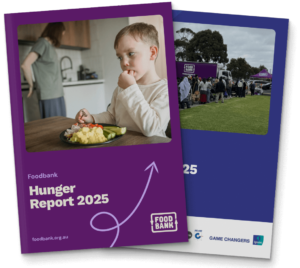 One in three Australian households, or 3.5 million households, experienced food insecurity in the past 12 months, according to the Foodbank Hunger Report 2025, released earlier this week. The report paints a stark picture of widening food insecurity across the nation, debunking the myth that hunger only affects the unemployed or homeless.
One in three Australian households, or 3.5 million households, experienced food insecurity in the past 12 months, according to the Foodbank Hunger Report 2025, released earlier this week. The report paints a stark picture of widening food insecurity across the nation, debunking the myth that hunger only affects the unemployed or homeless.
The Foodbank Hunger Report 2025 reveals that cost-of-living pressures remain the number one concern for 91% of food-insecure households, followed by housing and the broader economy. Behind the data are the real stories of families forced to skip meals so children can eat, workers going hungry to pay rising rents, and people living with disability or illness struggling to put food on the table.
Key findings:
- One in two (48%) of all renting households have experienced food insecurity in the past year.
- Seven in ten (67%) of households that include someone with a disability or health issue have experienced food insecurity in the past 12 months, with three quarters of them in the severe category.
- Nearly 7 in 10 (68%) single-parent households are now food insecure
- One in five households earning $91,000 or more experienced food insecurity in the past 12 months.
Domestic, Family and Sexual Violence 2025 Yearly Report tabled
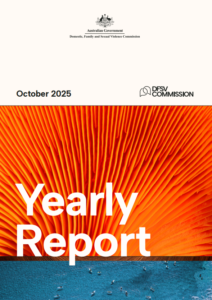 On 30 October, the Domestic, Family and Sexual Violence 2025 Yearly Report was tabled in Parliament, providing critical advice to government to ensure the National Plan to End Violence against Women and Children 2022-2032 (National Plan) delivers on its commitment to end gender-based violence within a generation by 2050.
On 30 October, the Domestic, Family and Sexual Violence 2025 Yearly Report was tabled in Parliament, providing critical advice to government to ensure the National Plan to End Violence against Women and Children 2022-2032 (National Plan) delivers on its commitment to end gender-based violence within a generation by 2050.
The Commission’s second report comes three years into the 10-year National Plan and identifies clear priorities for action designed to accelerate implementation of the National Plan.
The report emphasises five critical insights that must shape the next Action Plan: prevention must begin in childhood; the most effective solutions come from those most affected; systems must stop working in silos; institutions must move from control to care; and safety must be a right, not a privilege.
The Commission has also advised government to:
- Establish a DFSV Youth Advisory Council
- Implement a national, coordinated approach to engaging men and young boys
- Embed shared decision making for Aboriginal and Torres Strait Islander communities
- Prioritise learning from the experience of people with a disability, older women and LGBTQI+ and multicultural communities
- Develop a road map for implementing Australian Law Reform Commission justice responses to sexual violence recommendations
- Establish a Commonwealth implementation and delivery mechanism to drive cross government delivery and coordination
- Undertake systematic mapping of recommendations across all reviews and inquiries, and alignment across all related national plans
- Develop a national funding mapping framework to increase visibility and improve planning
- Invest in workforce development.
The Domestic, Family and Sexual Violence 2025 Yearly Report can be found here.
New Brisbane court dog helps reduce stress during court proceedings
 Last month the Federal Circuit and Family Court of Australia (Division 1) and (Division 2) announced the addition of Leo, a new court dog and facility dog, to the Brisbane registry and swore him in at an official ceremony as part of the Courts’ National Court Dog Program.
Last month the Federal Circuit and Family Court of Australia (Division 1) and (Division 2) announced the addition of Leo, a new court dog and facility dog, to the Brisbane registry and swore him in at an official ceremony as part of the Courts’ National Court Dog Program.
Three years ago, the courts launched the National Court Dog Program in Melbourne and Hobart. The Courts have since extended the program to Sydney, Parramatta, and Newcastle.
In the justice setting, Court Dogs are increasingly being utilised as a trauma-informed support for vulnerable litigants, witnesses and children, by reducing the stress of engaging with court processes.
Research indicates Court Dogs help reduce the effects of cortisol, the stress hormone that increases a human’s heart rate and blood pressure. Court Dogs also increase oxytocin, which reduces anxiety and improves a person’s clarity of thought and sense of calm.

New inquiry into the National Redress Scheme
The Joint Standing Committee on Implementation of the National Redress Scheme has launched an inquiry into the continuing operation of the Scheme and invites submissions to guide its findings.
With the Scheme scheduled to conclude on 30 June 2028, the inquiry will primarily examine the outstanding case management load, the availability and effectiveness of support services for applicants, and the transition arrangements as the Scheme approaches its end.
The Committee will also assess whether the Scheme is achieving its intended objectives and meeting the expectations of survivors and the broader community.
Submissions are encouraged from a wide range of stakeholders, including government, legal and support bodies, researchers, and survivors. The closing date is Friday 6 February 2026.
Full details of the inquiry, including the terms of reference, are available on the Committee’s website.
Select Committee on Productivity in Australia
On 4 November 2025, the Senate resolved that the Select Committee on Productivity in Australia be established. The committee is to present a final report by 30 September 2026.
The Committee will inquire into and report on:
- the history of productivity growth in Australia in both multifactor and labour terms
- objectives for a multi-decade national settlement strategy to achieve a more balanced distribution of population between cities and regional Australia, with a view to enhancing economic resilience, productivity and social cohesion
- the current position and opportunities to gain productivity growth
- conflicts of interest and structural barriers to sustainable growth
- the efficacy of federal competition law
- opportunities for the states and territories to drive growth
- the impact of regulatory tax burdens on productivity growth
- the impact and opportunity of technology
- priority opportunities in the market and non-market sectors for productivity growth
- Australia’s competitiveness and benchmarking against similar nations
- any other related matters.
The closing date for submissions is yet to be determined. You can keep up-to-date with the inquiry via the Committee’s website.

Children's Week 2025
It was Children’s Week from 18 – 26 October 2025. The week is a national celebration of children’s rights. It highlights the rights of children to thrive, learn, play and be heard, as set out in the United Nations Convention on the Rights of the Child (UNCRC).
See how FRSA Members celebrated the week:
- Uniting SA held a Children’s Week event for all ages in Port Adelaide.
- Kids First Australia partnered with local stakeholders and welcomed families to a free community event at the Old Cheese Factory in Berwick – a day filled with play activities, music, performances and conversations celebrating children and their rights. They also launched ‘Supporting Your Child Through Trauma’ — a new free video series designed to give parents confidence, tools and hope to keep children safe and supported, both online and offline.
- Anglicare SA’s Communities for Children Playford team celebrated at an event hosted by Playford Early Childhood Alliance.
- CatholicCare Sydney’s newly appointed Executive Director of Children and Family, and Disability Services, Kirsten Mead, shared the importance of Children’s Week.
- Mission Australia’s Parent Pathways team joined the fun at Frankston’s Children’s Week event, celebrating the magic of childhood.
- Mallee Family Care held a Discover Playgroup event in Mildura.
- FamilyCare visited the Kinder at the Seymour P-12 Kinder and gave them copies of the book I Have The Right and then read to the children.
- The Sexual Assault & Family Violence Centre, Meli, Barwon Area Integrated Family Violence and CatholicCare Victoria, presented the Unanswered Calls documentary by Safe Steps in Geelong – a film that highlighted the impact of family violence on children. Read more.
- Sora Community Services had a stall at Shopping World with painting, craft activities and letter writing.
- Communicare shared a video of their Communities for Children program and their partnership with Binar Futures to launch Binar Kaadidjiny, a culturally rich school-based initiative that empowers students to learn basketball, connect with culture and strengthen engagement with school. Watch the video below:
FLPN Project Officer National Conference
The Family Law Pathways Network held their annual FLPN Project Officer Conference in Sydney on 6-7 November 2025.
The event included presentations from FRSA’s Executive Director Jackie Brady, Attorney-General’s Department and the Federal Circuit and Family Court of Australia.
This is an annual event that moves around Australia. It is an information sharing, networking and learning experience Conference.


CFCA Needs and Impact Survey 2025
 The Child Family Community Australia (CFCA) Needs & Impact Survey for the child and family sector is now open!
The Child Family Community Australia (CFCA) Needs & Impact Survey for the child and family sector is now open!
If you use CFCA or Australian Institute of Family Studies research or resources in your work, they want to hear from you!
Your feedback will shape their upcoming resources so they can ensure they are relevant to you and easy to use.
This is also your opportunity to tell them your topics of interest and information gaps in your work, to help inform future resources.
This survey only takes 10-15 minutes to complete and closes 30 November 2025. Click here to complete the survey.
Digital Technology in the Not-For-Profit Sector Report launch
 Infoxchange are launching the Australia and New Zealand 2025 Digital Technology in the Not-For-Profit Sector Report via a webinar on Tuesday, 11 November 2025.
Infoxchange are launching the Australia and New Zealand 2025 Digital Technology in the Not-For-Profit Sector Report via a webinar on Tuesday, 11 November 2025.
It’s the tenth anniversary of the report, and it represents a significant moment for the sector, helping advocate for greater investment in digital capability resourcing across NFPs and community organisations, many of which are increasingly under-resourced and struggling to meet the demand on the frontlines of essential service delivery.
The webinar and report also helps to educate and inspire NFPs by showing how organisations are using digital technology like AI to advance their missions and strengthen outcomes for the communities they serve.
Launch details:
Date: Tuesday, 11 November 2025
Time: 10:00 am – 11:30 am AEDT
Platform: Zoom (online event)
Effective Online Group Leadership Workshop
SUNSHINE CIRCLES – Albury
SUNSHINE CIRCLES – Shepparton
NSW
Children’s Contact Service (CCS) Support Worker | Relationships Australia Canberra & Region
Relationship Counsellor | Interrelate
Relationship Counsellor – Senior Practitioner | Interrelate
ACT
Family Dispute Resolution Practitioner Trainee | Relationships Australia Canberra & Region
If you have any events you’d like listed on the FRSA Events and Training Calendar or job vacancies you’d like listed on the FRSA Jobs Board, email Communications Officer, Vanessa Lam at communications@frsa.org.au. Please note that posting onto the FRSA website is reserved for FRSA Members only.

A fairer tax and welfare system | St Vincent de Paul Society
St Vincent de Paul Society’s National Council contracted ANU’s Centre for Social Policy Research to review Australia’s welfare and taxation system to reduce poverty and increase equity.
The report contains four models that are budget-neutral and progressive.
The models help those living in financial stress and poverty – people receiving Job Seeker and working age pension recipients, sole-person households, single parents and renters.
It helps tackle the fact that the lowest 20 per cent of households receive just five per cent of all income.
The model proposes that working age payments, as well as the Disability Support Pension, Family Tax Benefit (Part A) and Commonwealth Rent Assistance be increased.
Evidence-based approaches to child justice | Australian Human Rights Commission
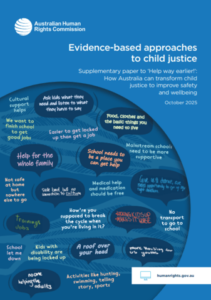 This report contains six case studies from Australia and around the world that are examples of evidence-based approaches to reforming child justice systems. It shows how primary prevention, early intervention, integrated services and therapeutic community-based approaches that emphasise family and cultural connections can transform outcomes for children.
This report contains six case studies from Australia and around the world that are examples of evidence-based approaches to reforming child justice systems. It shows how primary prevention, early intervention, integrated services and therapeutic community-based approaches that emphasise family and cultural connections can transform outcomes for children.
The two-way relationship between socio-economic status and health conditions for Australian men | Australian Institute of Family Studies
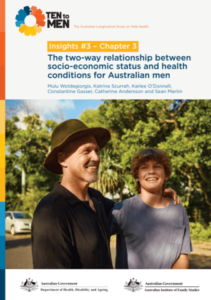 This report shows a two-way relationship between key contemporary economic and social indicators and the development of physical and mental health conditions over a 9-year period for Australian men aged 18–55 years. The research highlights the need for integrated health and social policies that address both the causes and consequences of poor health.
This report shows a two-way relationship between key contemporary economic and social indicators and the development of physical and mental health conditions over a 9-year period for Australian men aged 18–55 years. The research highlights the need for integrated health and social policies that address both the causes and consequences of poor health.
More homes, better cities: letting more people live where they want | Grattan Institute
 This report finds that housing in Australia’s major cities is among the least affordable in the world. It proposes that three-storey townhouses and apartments should be permitted on all residential land in all capital cities as part of a concerted policy assault on the housing crisis. The report provides 11 recommendations.
This report finds that housing in Australia’s major cities is among the least affordable in the world. It proposes that three-storey townhouses and apartments should be permitted on all residential land in all capital cities as part of a concerted policy assault on the housing crisis. The report provides 11 recommendations.
How can we do better? Supporting children’s mental health in Australia | Emerging Minds
This podcast episode looks at the strategies and policy shifts that can improve mental health outcomes for Australia’s infants, children, young people and their families.
Participants discuss the need for better collaboration between professionals and more integrated services, improving mental health literacy among community members, and shifting away from using diagnostic thresholds to determine who can access mental health support. The episode includes conversations with a range of professionals and people with lived experience of family and domestic violence, substance use and mental health difficulties.
System navigation: approaches to navigate and minimise complexity | Brotherhood of St Laurence
Many human services systems across Australia and internationally have introduced navigation roles to support people to navigate to and access services. Currently in Australia there is no agreed definition of a system navigator. This paper outlines the role of a navigator and provides short, medium and long-term recommendations for improving system navigation.
What the evidence tells us: Insights from ANROWS’ sexual harassment research program | ANROWS
 Between 2021 and 2024, ANROWS commissioned four major studies on workplace sexual harassment across different contexts: retail industries, LGBTQ young people, migrant and refugee women, and workers targeted through digital technologies.
Between 2021 and 2024, ANROWS commissioned four major studies on workplace sexual harassment across different contexts: retail industries, LGBTQ young people, migrant and refugee women, and workers targeted through digital technologies.
This latest summary brings these findings together. The message is clear: sexual harassment is deeply entangled with exploitation and discrimination. Tackling it requires more than policies; it requires structural reform, training that works and leadership that builds safer, more inclusive workplaces.
The right to power: keeping First Nations communities on prepayment connected | Original Power
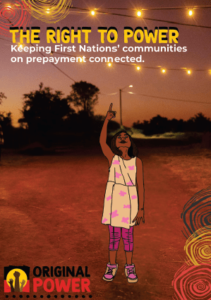 This report shows how frequent household disconnections are impacting food security, health, wellbeing and economic participation for First Nations’ communities in Australia. It provides six high-level recommendations and associated actions to create a fairer and more inclusive energy transition for all Australians.
This report shows how frequent household disconnections are impacting food security, health, wellbeing and economic participation for First Nations’ communities in Australia. It provides six high-level recommendations and associated actions to create a fairer and more inclusive energy transition for all Australians.
Speeding up progress towards gender economic equality | Jobs and Skills Australia
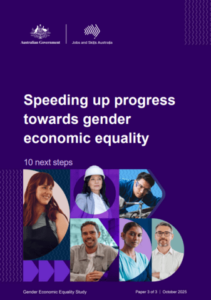 This paper is the third in a three-part series on new perspectives on gender economic inequality in Australia. It outlines 10 key next steps to address the deep-rooted policy challenges within the jobs and skills system based on Paper 1 and 2 findings and new evidence. The 10 recommendations include policy actions
This paper is the third in a three-part series on new perspectives on gender economic inequality in Australia. It outlines 10 key next steps to address the deep-rooted policy challenges within the jobs and skills system based on Paper 1 and 2 findings and new evidence. The 10 recommendations include policy actions
Unsafe and Unseen: Spotlighting the needs and experiences of unaccompanied young people seeking shelter | Centre for Innovative Justice & Melbourne City Mission
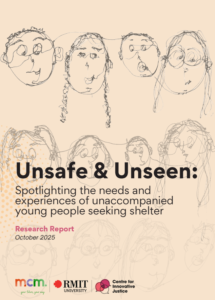 ‘Unsafe and Unseen: Spotlighting the needs and experiences of unaccompanied young people seeking shelter’ builds on an important evidence base that engages directly with young people, situating them as the both the experts of their own lived experiences and the most vital voices in advocating for change.
‘Unsafe and Unseen: Spotlighting the needs and experiences of unaccompanied young people seeking shelter’ builds on an important evidence base that engages directly with young people, situating them as the both the experts of their own lived experiences and the most vital voices in advocating for change.
NFP Resilience Report 2025 | Australian Communities Foundation
Australia’s not-for-profit sector is a driving force for positive change – delivering vital services, strengthening communities, and responding to growing demand with resilience and innovation. Based on insights from 240 organisations nationwide, the NFP Resilience Report reveals a pressing need for greater financial stability across the sector – and explores potential solutions for long-term resilience.
Want to submit something to the FRSA eBulletin?
If you have an news item or event that you would like to be featured in a future eBulletin please submit your announcement via the form below or email communications@frsa.org.au with the subject “FRSA eBulletin submission”.
Please note FRSA members receive priority for items posted in the eBulletin. And to keep information current, relevant and useful, submissions will not be repeated from week to week.
Subscribe
Subscribe to receive future eBulletin editions directly to your inbox!





